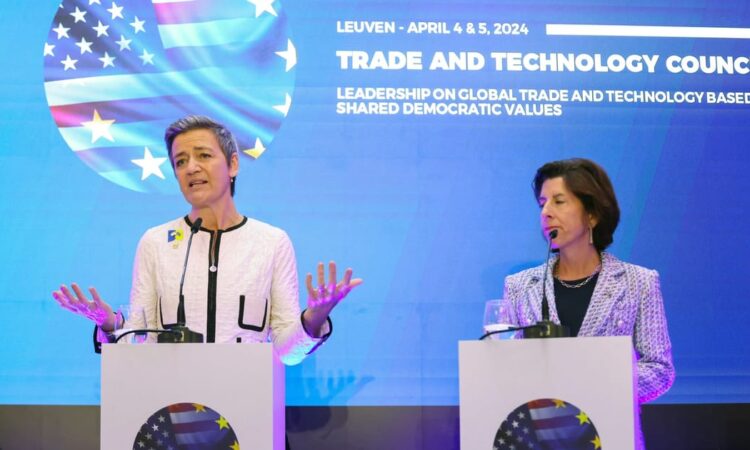
Washington was pushing to “put China in the text every two sentences,” said one European diplomat who was granted the condition of anonymity to speak candidly. “It kept hammering on the Chinese nail.”
To Washington’s satisfaction, the two sides committed to team up with other countries to tackle “China’s non-market policies and practices in the medical devices sector, and conveyed these concerns directly to China,” the final statement read. Similar commitments were made during previous transatlantic summits. They also name-checked Beijing’s role in global foreign interference campaigns.
Still, Brussels has come to embrace the U.S. tough stance on China in certain areas, like microchips, where both the EU and U.S. are now pumping billions via government subsidies to boost their own semiconductor production. This was fully on display in the host town of Leuven, the home of the world’s leading chips R&D center Imec, which top officials visited on Thursday.
Imec, as well as the Dutch chips tool supplier ASML, has agreed to abide by U.S. export controls on microchips that are aimed at China. Washington’s move has pressured Brussels into a re-think of how to defend its trade interests, which has been baked into a broad economic security strategy proposed by the EU executive.
Trump’s shadow
The EU still bears the scars from its first encounter with Trump. As the Republican presidential candidate performs strongly in the polls, the European Commission is planning for a potential souring of the relationship should he win in November.
“The Commission is setting up a structured internal process to prepare for all possible outcomes from the U.S. presidential election,” a Commission official, who was also granted anonymity, said earlier this week.






